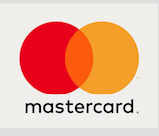RBI Joins the European Payments Initiative as Acceptor...
- 27.11.2025 03:25 pm
Klarna Set to Take Off With Lufthansa Group
- 27.11.2025 12:45 pm
Clip Introduces Clip Pin Pad, Its First Fixed Terminal...
- 27.11.2025 09:35 am
Juspay and Sabre Announce Strategic Agreement to...
- 27.11.2025 09:05 am
Ecommpay Urges E-Comm Businesses to Tap Into the...
- 26.11.2025 02:55 pm
Switzerland’s AMINA Bank and Crypto Finance Group...
- 26.11.2025 11:30 am
Monex Canada Expands Monex Pay With New Mass Payments...
- 26.11.2025 11:15 am
Smarter POS and Faster Payments: Helping Merchants Win...
- 26.11.2025 08:15 am
UnionPay International to Expand Card Acceptance With...
- 25.11.2025 04:25 pm
Thunes and MoMo PSB Bring Real-Time Cross-Border...
- 25.11.2025 11:25 am
Global Financial Community Completes Switch to ISO...
- 25.11.2025 11:25 am
Unlimit Partners With ShipAfrica to Power Cross-Border...
- 25.11.2025 10:55 am






















